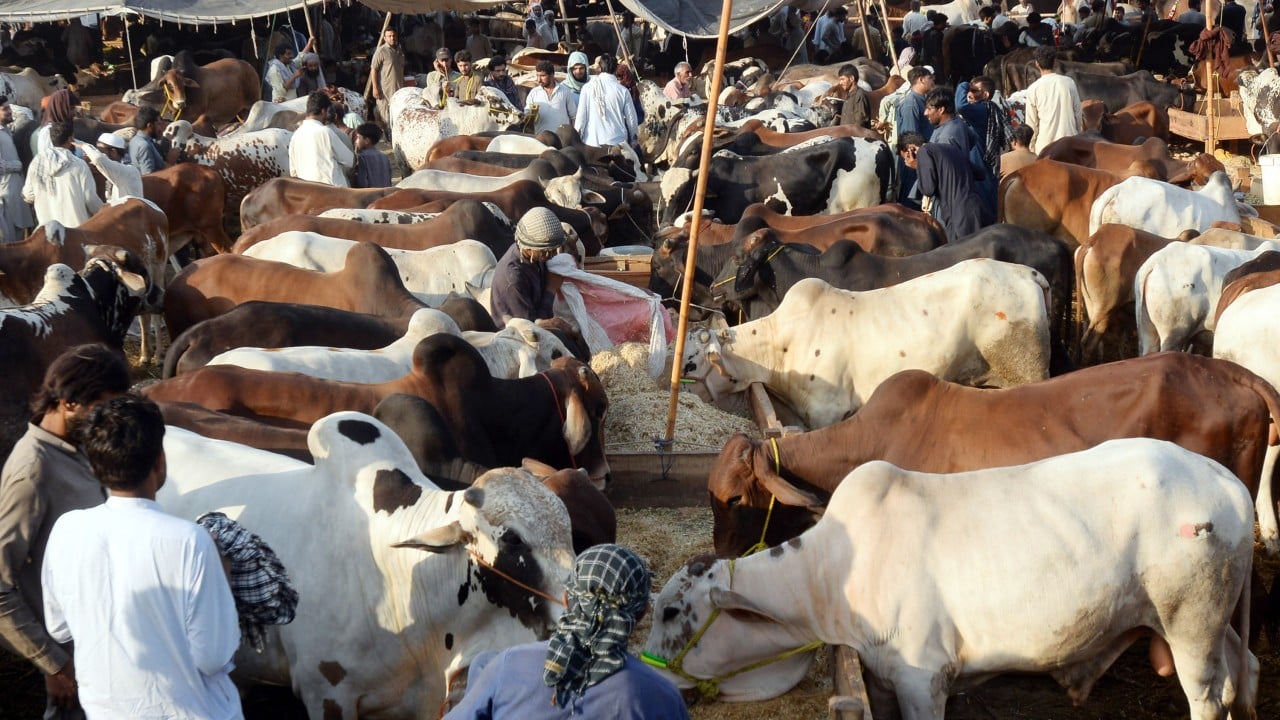Once a year, Pakistanis mobilise for an operation that is akin to a major battle taking place in terms of scale and blood being spilled.
Advertisement
Much is at stake – at least financially – as veritable four-legged armies numbering hundreds of thousands march on Pakistan’s population centres from farmsteads around the country.
For the livestock farmers leading the sieges, the deals cut at pop-up markets for sacrificial bulls, goats and sheep – along with the occasional camel – on the Muslim festival of Eid al-Adha determine if their efforts over the last six months or so were worthwhile.
The vast majority of breeders are either sharecroppers or own small landholdings barely capable of turning a profit, and many live below the poverty line. They spend half the year raising small flocks and herds for Eid al-Adha to supplement their limited income.
However, Pakistan’s livestock herds are vulnerable to natural disasters and poor farming practices.
Advertisement
An estimated 1.1 million farm animals were killed by the Indus river superfloods in 2022, which inundated a third of Pakistan.

